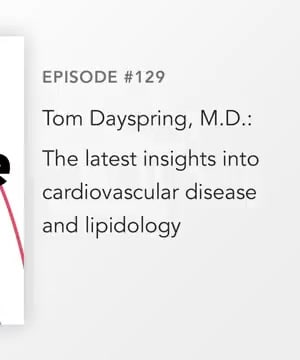How to improve testosterone
Sources:
To improve testosterone levels, experts recommend the following lifestyle and dietary practices:
-
Weightlifting: Heavy resistance training, particularly with large muscle groups like legs, is effective in raising testosterone. Focus on compound exercises like squats and deadlifts. Avoid overtraining, as it can cause the opposite effect 1 2.
-
Sleep: Quality sleep is crucial for testosterone production. Practices that enhance sleep include maintaining a consistent sleep schedule, avoiding eating close to bedtime, and reducing exposure to light before sleep 3 4.
-
Stress Management: Reducing chronic stress can help to increase testosterone levels. In men, being in a protective or slightly dangerous environment may boost testosterone 3.
-
Diet: A balanced diet with adequate protein, fats, and complex carbohydrates is important. Nutrients like zinc and vitamin D are essential for testosterone production. Avoid extreme diets that are too low in carbs or fats 3.
-
Cold Exposure: Taking cold baths may help to increase testosterone levels 5.
-
Remove Harmful Plastics: Avoid eating or drinking from heated plastics, as they can leach substances that disrupt hormonal balance 6.
-
Supplements: Certain supplements like creatine, ashwagandha, Tongkat Ali, and Phdogia agrestis might be beneficial, though their impact can be less significant compared to the abovementioned lifestyle factors 7 8.
Always consult with a healthcare professional before making significant lifestyle changes or starting any supplement regimen.
RELATED QUESTIONS-
How to lower triglycerides?
Sources:
To lower triglycerides, experts give the following advice based on various lifestyle interventions:
-
Reduce Carbohydrates: Specifically targeting carbohydrate restriction can be an effective strategy to lower triglycerides as it is a major dietary determinant of triglyceride levels 1.
-
Address Insulin Resistance: Improving insulin sensitivity through dietary means, such as reducing processed food intake, can significantly affect triglyceride levels 2.
-
Lose Weight if Overweight: Excess body weight is a contributing factor to high triglycerides, and weight loss can help reduce them 3.
-
Exercise: Combining resistance training and cardiovascular exercise is beneficial for improving lipid profiles, including lowering triglycerides 4.
-
Increase Omega-3 Fatty Acids: Higher doses of omega-3 fatty acids (around 4000 milligrams a day) may be necessary for significant triglyceride reduction 5.
-
Reduce Alcohol: While not mentioned in the clips directly, it is commonly advised to lower alcohol consumption since it can impact triglyceride levels.
-
Limit Saturated Fats: There are suggestions that certain genotypes may respond adversely to saturated fats, leading to an increased LDL and triglyceride response, so moderating saturated fat intake could be beneficial 6.
-
Check Triglyceride Levels: Fast for 12 hours and check that both glucose and triglycerides are below 100 to indicate good insulin sensitivity 7.
It's important to consult with a healthcare professional for personalized advice, especially in the context of unique health conditions or concerns.
RELATED QUESTIONS-
What are ideal Cholesterol and Triglycerides levels?
Sources:
Ideal cholesterol and triglyceride levels are generally defined by certain benchmarks. Here are some insights from trusted experts:
-
Total Cholesterol: While no specific numbers are provided in the clips, typically, a total cholesterol level of less than 200 mg/dL is considered desirable for adults.
-
Low-Density Lipoprotein (LDL) Cholesterol: Although a single ideal number for LDL cholesterol can vary based on individual risk factors, a level less than 100 mg/dL is often considered ideal for individuals without health conditions relating to the heart or blood vessels.
-
High-Density Lipoprotein (HDL) Cholesterol: An HDL cholesterol level of 60 mg/dL or higher is viewed as protective against heart disease.
-
Triglycerides: Values for triglycerides are considered ideal when they are less than 100 mg/dL, as higher levels can be indicative of increased risk for metabolic health issues 1.
The clips highlight the importance of the triglyceride-to-HDL ratio, with ideal values being a ratio of less than 2 1 2.
It is important to note that these benchmarks may vary depending on additional health factors and the recommendations of specific health organizations, and it's always best to consult with a healthcare provider for personalized advice. The given values are based on general guidelines and may not be tailored to one's individual health profile or risk factors.
RELATED QUESTIONS-
How to improve sperm motility?
Sources:
To improve sperm motility, experts suggest several strategies:
-
Avoid Heat and Electronic Devices: advises against prolonged exposure to heat, such as using saunas—and to reduce cellphone use near the gonads, as it can negatively affect sperm count and motility 1. This sentiment is echoed by , who suggests avoiding carrying smartphones in front pockets due to heat-related effects that can diminish sperm quality 2.
-
Healthy Diet and Lifestyle: The hosts recommend a balanced diet that includes adequate, healthy fats, sufficient protein, and minimizing heavily processed foods. Getting good sleep and managing stress levels are also crucial, as your body's overall health reflects in sperm quality. They also mention that supplements like zinc, vitamin D, and creatine may boost sperm count and motility 3.
-
Vitamin D: Speaking on , emphasizes the role of vitamin D, noting that it can substantially influence spermatogenesis and fertility. Ensuring an adequate vitamin D level can be beneficial for sperm health 4.
-
Reduce Stress: Stress negatively impacts sperm motility and fertility. highlights the importance of reducing stress for improving sperm motility and overall fertility 5.
-
Acupuncture: states that acupuncture has been shown to improve sperm volume, quality, and motility, possibly by enhancing the pathways that support healthy hormone production and spermatogenesis 6.
-
Limit Lubricant Use: Some commercially available lubricants can be detrimental for sperm health, despite not containing spermicide, as pointed out by , who recommends discussing this matter with a healthcare provider 7.
It's essential to consult with a healthcare provider for personalized advice and explore these recommendations further with medical supervision.
RELATED QUESTIONS-
Tell me about Mind Pump Podcast
The delves into a wide range of health and fitness topics, offering insights from nutrition and exercise to mental health and personal growth. It's hosted by three knowledgeable figures in the fitness community: , , and . The podcast covers current fitness trends, debunks health myths, and provides actionable health and wellness advice. Additionally, the hosts engage with a variety of experts and leaders in their respective fields to dive into specific topics that interest their audience.
Guests on the show include psychologists, authors, nutrition experts, fitness coaches, health influencers, personal trainers, scientists, and therapists. Some notable guests have included Dr. Jordan Peterson, Jim Kwik, Shawn Stevenson, and Dr. Gabrielle Lyon.
The topics discussed on the podcast are diverse, ranging from protein goals and gut health to mental health and personal training, including discussions about brain types, the impact of salt intake, quality of life, bulking and cutting strategies, metabolism, intensity in workouts, and dating in the modern world. They also discuss specific aspects of fitness like strength training, cardio for fat loss, glute training, and the research around creatine.
The show caters to those looking to improve their physical training and overall well-being, and the hosts' diverse expertise provides a rich source of information and perspectives for listeners.
RELATED QUESTIONS


















